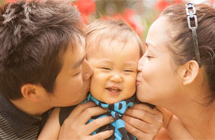人口定时炸弹:日本人“濒危”的8个迹象
|
要论世界上寿命最长的国家,日本总能遥遥领先。但是对于生育率极低的日本来说,这一长寿优势只能加剧恶性循环,甚至催生出了不少怪象,比如,成人纸尿裤销量超过婴儿纸尿裤,监狱变成养老院,和朋友结婚等等。专家估算,长此以往,日本人将在3776年灭绝。 Japan is dealing with what economists call a "demographic time bomb." Through a vicious cycle of low fertility and low consumer spending, the country's economy has gradually shrunk over the last 25 years. People are living longer, and they're heaping greater social-security costs onto younger generations who aren't having kids to replace them — thereby furthering the cycle. Here are some of the most visible signs in daily life that the time bomb is ticking. There are now 68,000 people over 100 years old.
To put Japan's widespread aging in perspective, 2017 marked the 47th straight year that the country has broken its own record for the number of centenarians, or people living past their 100th birthday. In 2016, there were roughly 65,000 centenarians out of the total population of 127 million. The new total for 2017 stands at 67,824, The Asahi Shimbun reported in September. Japan has the highest rate of centenarians out of any country, with 4.8 per 100,000 people. The US, the country with the most overall, has 2.2 per 100,000. Adult diapers outsell baby diapers. Ever since 2011, sales of adult diapers in Japan have outpaced those of baby diapers. The trend reflects just how big the cohort of senior citizens is: People over 65 make up a larger demographic than any other in Japan. Of the 127.11 million people, about 26.7% of them are seniors. That proportion is up 3.7 percentage points from six years ago. |









